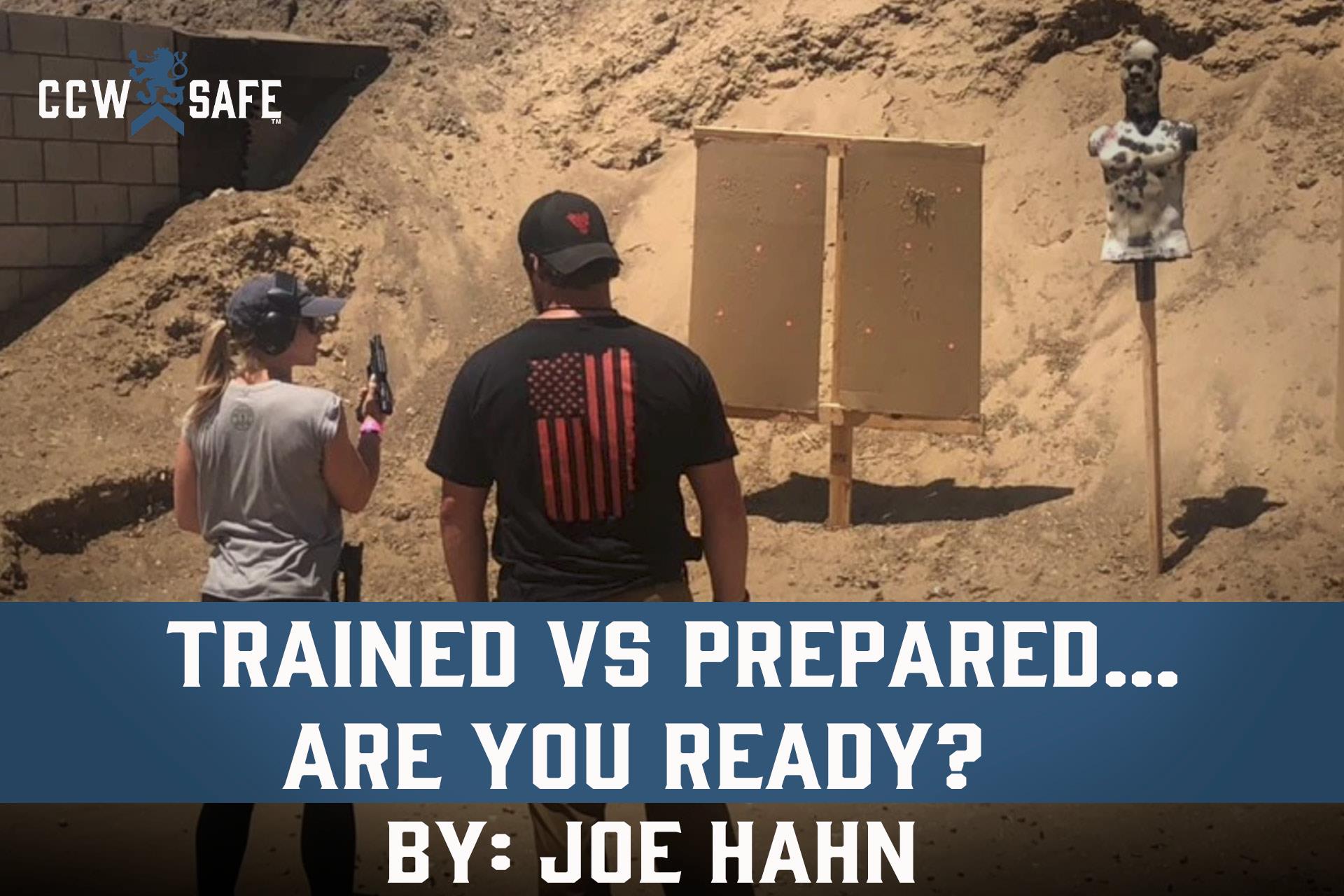
Posted on October 23, 2020
Trained VS Prepared… Are You Ready?
Trained VS Prepared… Are You Ready?
I was recently teaching a defensive pistol course to some folks a few weeks ago, and a question I always start with is, “How many of you have trained with firearms before?” Usually a majority of the students say they have, whether it is a concealed carry course to get their license, firearm familiarization course, or trained with someone they know who is proficient with weapons. At the end of the course, I ask students who believed previous training had prepared them to defend themselves before this course. Only about a third of them felt that it did. Why don’t they feel prepared? Because training is something you do, prepared is something you are.
There is also a difference between being trained and just training. Having enough training depends on the skill set or subject. Some people have trained in some combative’s such as boxing, Muay Thai, BJJ, or wrestling for a good part of their young adolescent life. This established base line can help you in a stressful situation because it required multiple senses to achieve. Think back to highschool, algebra took most of us at least three years learn and only a few mastered it! If your child walked in today with a problem, would you be able to solve it? Unless you have constantly used it, the answer is probably no. The biggest thing with any learned or trained skill is consistency and revisitation.
How does training translate into preparedness? You cannot have preparedness without training, but you can have training without being prepared. Being prepared means you are skilled, capable, and ready to handle the problem set in front of you proficiently. You have probably seen or heard of some folks that are overly prepared. Those who have an excessive food storage that can last for months, self-sustained water source, and ammo to outfit a small military unit. Also, there are those who are proficient in one skill set such as black belts in BJJ, grand masters in shooting, or professional race car drivers. Albeit excellent skills to have, it just leaves a narrow scope of situations it prepares you for. I’m not saying that dedicating your time to these is a waste, but to think about other skill sets to round out your overall preparedness.
The biggest take away is that training does not equal preparedness, but being prepared requires training. To become prepared you must train regularly, frequently, and vary your routine. Check out different certified and qualified trainers in your area. Identify your needs based on your situation. The primary goal is to survive in dangerous situations. To do this, we need to increase our chances of survivability with training. Do you live in a rural or urban area? Can you navigate without a cell phone? Can you properly defend yourself and your loved ones? The more complicated the skill, the more you need to train to be proficient, and the more likely you will recall how to do it in a time of need.

|
JOE HAHNWhile attending Texas A&M University for a Biomedical Science Degree, Joe volunteered to serve after our great nation was attacked. Joe spent 13 years in the United States Navy as a Special Operator First Class (SEAL). After completing Basic Underwater Demolition /SEAL training Class 252, he was stationed on a west coast team where he deployed multiple times in support of Operation Iraqi Freedom (OIF) from 2005-2009. In 2009 Joe completed Selection and Training for an east coast based SEAL Team. He deployed three times to Afghanistan in support of Operation Enduring Freedom (OEF) and other undisclosed locations worldwide. |